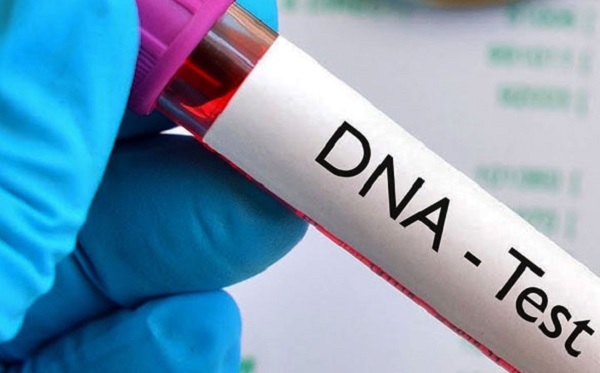
Kampala, Uganda | THE INDEPENDENT | Experts attending a dialogue on ethics in the use of emerging medical technologies for DNA testing have expressed need for a stringent policy that provides for doing paternity tests in early childhood or never.
Speaking at a meeting held at Uganda Management Institute on Tuesday, Prof Noah Kiwanuka, an epidemiologist based at Makerere University School of Public Health said paternity can be determined from as early as when a mother gets pregnant when disastrous effects of such a decision are minimal.
Some of the options he suggests include maternal blood tested within the first thirteen weeks of gestation, testing the amniotic fluid to determine the DNA of mother and father or doing an autopsy on the umbilical cord.
Apart from that, the doctor says a DNA can also be done immediately after the child is born when the bond between the child and father has not been firmly established. For him most of the disappointment and anguish associated with the test arises from the bond created with the child.
His view is shared by Dr. Fredrick Nakwagala who heads Internal Medicine at Mulago National Referral Hospital who calls for clinical guidelines with a checklist to reduce errors and omissions in testing. He notes however that while there are opportunities for testing early enough, the medical field in Uganda has been so far very slow at adopting tests for the new born.
This suggestion comes after the Ministry of Health recently launched guidelines for DNA testing which largely focused on testing laboratories.
While this move was meant to sanitize the practice considering concerns arising from a testing craze which saw some families tear apart, experts say government only addressed part of the problem. They propose a need for a segmentation approach where all aspects of the issue including technological advances, society norms and the cost are looked into.
Kiwanuka says for instance that policy should offer them clarity on who owns the DNA and what rights individuals biologically related to a person seeking such a test have as a single test can expose the whole family’s genetic material.
However, giving his comments, Prof. William Kaberuka, the Chairperson of the Uganda Policy Development and Management Forum said cultural norms should be given priority when dealing with the DNA issue citing the bible where Joseph was not the biological father of Jesus Christ but was being referred to as a son of a carpenter.
For him, doing paternal tests in old age is unnecessary and detrimental to not just the individuals involved but the whole society.
On his part, Dr. Dominic Lali Mundrugo, the Assistant Secretary General of the Uganda National Commission for UNESCO called for a deeper understanding of the ethical issues suggesting that DNA is not necessary when there is a material father for the child. For him, the biological father should seek a paternity test earlier on or never for the sake of the general welfare of the individuals involved.
*****
URN
 The Independent Uganda: You get the Truth we Pay the Price
The Independent Uganda: You get the Truth we Pay the Price



I wonder where this is like dictatorship or heavy-handedness being meted on to people or what? What’s the purpose of DNA? In fact, even before these modern technologies became more available, these Uganda families had their ways with certain things e.g. establishing true paternity. I thought with the availability of DNA in abundance, society would evolve and the true purpose for DNA would be realized way beyond the myopic focus running around. For example, all these databases are free inflowing information to aid in certain studies / research and for coming up with certain solution for our society e.g health solutions besides having a database to track down e.g. criminals. But at the moment, instead of counselling people along the way to ensure that the technology isn’t disruptive, the so called “experts” are taking that heavy-handedness route and creating false aura around themselves; fake.
Let Science be applied to meet the needs of individuals as opposed to making general statements
The ability to provide for a child should be a personal decision, a man does not have to raise children born under his roof ( even when the conception occurred in his absence) by coercion
He on the other hand has an obligation to look after all his biological children
These eminent Scientists talk of autonomy
Paternity testing in early pregnancy or early child hood is desirable when the conditions remain constant
Is this recommended for every couple?
If not then, it arises, when one has reason to doubt ( you cannot place a time line as to when a man will learn of infidelity on part of his spouse)
Occasionally maternal wisdom places a child in a good environment, away from a biological father.
Needless to mention the males who interact with several women in a casual manner (a number of these conceive)
There is nothing wrong with Paternity testing
Those males requesting for it should be counseled ( in any case they have reason to go for it)
Instead of considering,” seeking the truth to be disruptive”
Let this society identify the reason(s) behind the mistrust that is driving increase in demand for the tests
Even data bases are used in studying population genetics, thus individuals that are closely related will cluster together
Paternity testing then makes paternal DNA a unit if reference against which all those that are closely related cluster
It goes without saying that disease determinants that are transmitted would be very frequent or space among clusters